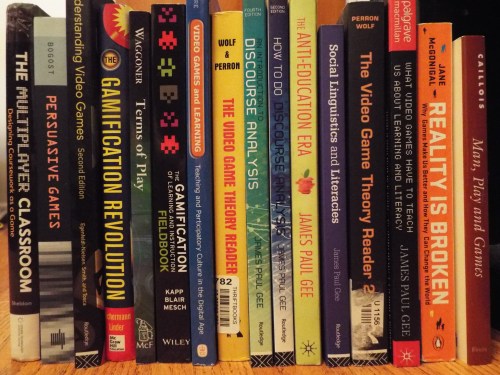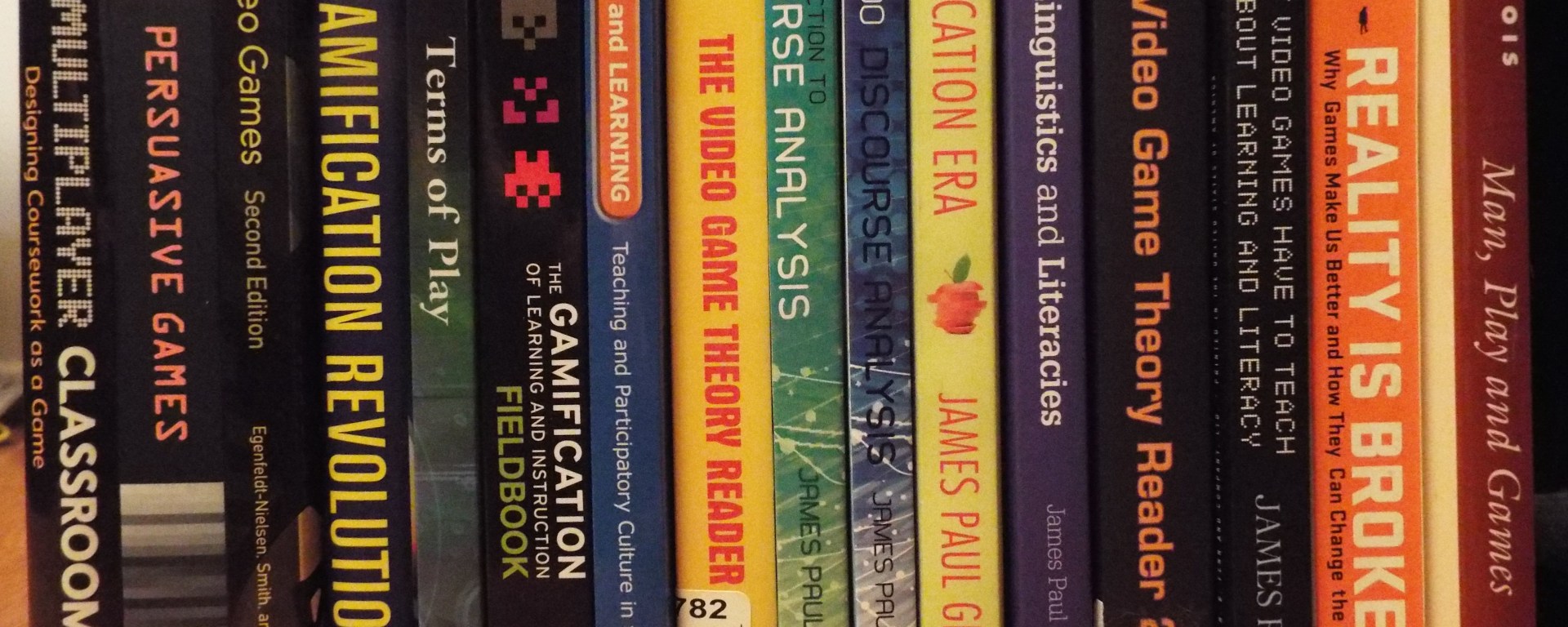
Now that I have some certainty of what I will be teaching this fall, I’m trying to sort through how I might shape those courses. What follows is my attempt to organize some thoughts through writing. Admittedly, this is mostly for myself, and isn’t the most entertaining bit I’ve written, but I thought I would share what I’m thinking for anyone who might be interested in my process when it comes to course creation and the inclusion of video games. So yeah, it is what it is.
The Basics:
- I will be teaching two sections of English 103 which are entry level composition and rhetoric courses. English 103 focuses on the process of writing, audience, critical reading of various texts, self-discovery and engagement with communities, and electronic writing.
- English courses generally have anywhere from 21-27 students enrolled.
Options:
In terms of the university where I’ll be teaching, they are fairly flexible and open to new ideas and methods in the classroom as long as course outcomes are met. This is the same university that let me run a second semester composition course as a video game, so we both know what we’re getting into. 😉
One of my primary motivations for including video games in these courses is that many students already know them; they possess knowledge of video games and their cultures which translates into a form of digital literacy. Video games can also help students be a bit more comfortable with the class and with writing. And because I am familiar with video games, the common interest acts as a bridge between me and some of my students. I could go on at length about why video games matter in education, but I have a whole “Press Start” category for that.
But this is where I have some decisions to make. While I would love to continue experimenting with digital rhetoric and gamification, I have a hunch that running a first-semester composition course as a game would not be as successful as a second semester course for a few reasons, and, because this will be my first semester back to grad school, I want to allow myself a period of time to ease back into everything.
So I’ve scrapped the idea of an entire course as game and am considering a unit that is either focused on video games (it will have students writing about some video game aspect) or using video games as an example for how a single assignment could play out.
Regardless of my integration of video games or not, the courses, as is typical, will focus on five major writing assignments. The assignments will probably be as follows:
- This I Believe Essay (narrative writing)
- Visual Analysis (focuses on visual & rhetorical features)
- Rhetorical Analysis (focuses on written, rhetorical features)
- Summary Packet (summative and evaluative writing & documentation skills)
- Inquiry Project (mini research assignment using skills from previous papers)
The obvious choice would be to pair video games with the visual analysis assignment. In the past, I taught the assignment focusing on advertisements that presented stereotypes, and some of my students did use video games for their papers. So this can easily work. And, again, I wouldn’t require students to write about video games (obviously they could if they had the desire), but video game advertising could be used as an example to work through the unit.
The other option would be to use examples of how people talk about video games for the rhetorical analysis. Students could analyze articles from gaming news sites and compare them to forums or other communities where people talk about games. Students would analyze the ways in which arguments are shaped, claims are made, and even how games are described between communities.
Both options will need a lot of work on my part, and I’ll need to think through them some more. I welcome any thoughts regarding either option or any other ideas you may have.
I will have a more “video game focused” post for Thursday and an update for the coming months soon. Thank you for reading. 🙂



I want to read all your books!
Wait…that sounds weird. What I mean is, some of those books look interesting. I’ve just finished “Wonderland: How Play Made The Modern World” by Steven Johnson, and it’s got me quite interested in the whole “Play as a tool” thing. I’ma look up that “Reality is Broken” one, I think.
I haven’t quite gotten through all of them yet, but it’s a growing collection.
And I’ll need to add “Wonderland” to my list.
Yeah, it was a decent read – but it’s more of a loose overview of frivolity (and how seemingly trivial things had a much greater impact on history than once thought) rather than an academic look at any one thing in particular. The bit about Video Games was quite brief, but he goes into more detail about them in his book “Everything Bad is Good for You”.
“Death by Video Game” by Simon Parkin is also quite a good book about how Video Games can contribute to the modern world (there’s a review of it at my place, you know…. if you’re interested 😉). Reality is Broken looks quite similar, and given it’s available on my poor man’s kindle, I think I’ma give it a go!
This sounds like it’s going to be an amazing course. Are you going to be posting updates on it throughout?
I plan to!
Awesome. I am excited to hear more!